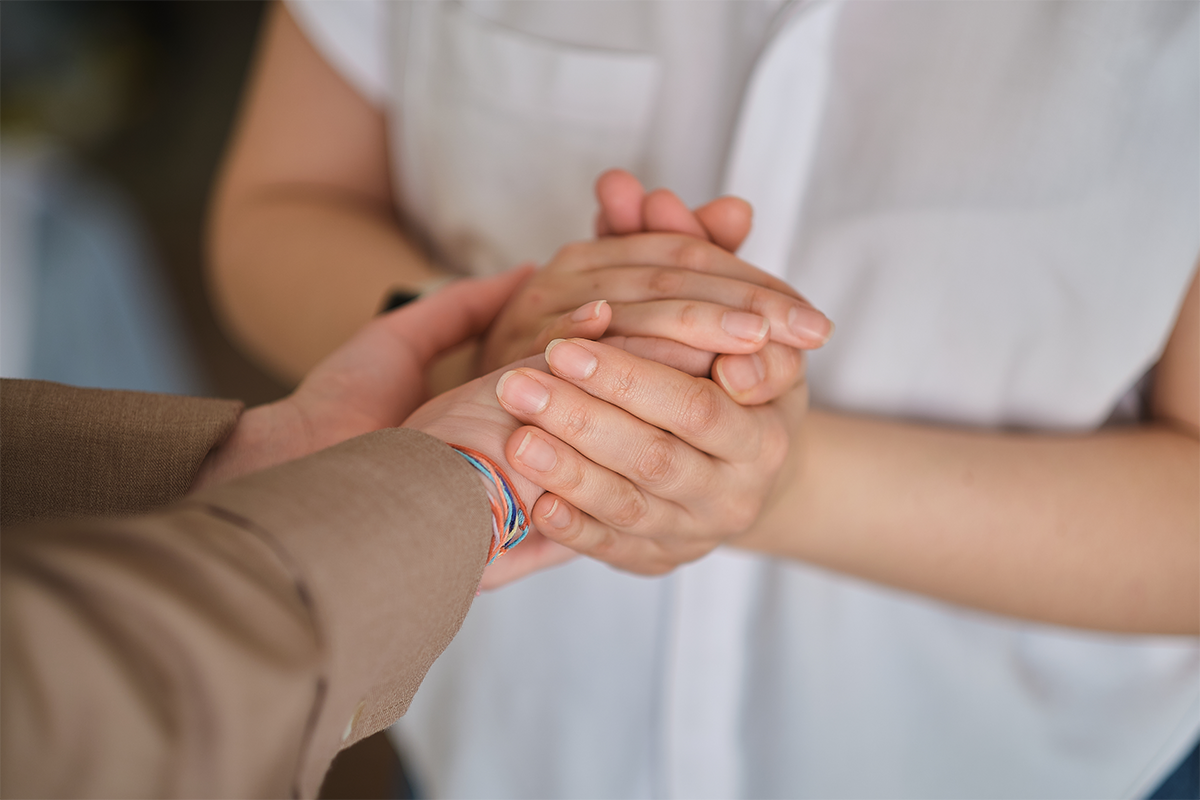Advertisement
The Healing Truth
Many people think cancer is a death sentence. This view isn’t unfounded or even unrealistic – each year, 140,000 Canadians are diagnosed with cancer, and 68,000 die from it. A cancer diagnosis can be one of the most traumatic, life-changing events any of us will experience. But it doesn’t have to be that way. As … Continued

Many people think cancer is a death sentence. This view isn’t unfounded or even unrealistic – each year, 140,000 Canadians are diagnosed with cancer, and 68,000 die from it. A cancer diagnosis can be one of the most traumatic, life-changing events any of us will experience.
But it doesn’t have to be that way. As many people who live with cancer know, the discovery of the disease marks the beginning of a new chapter in life. Researchers and healers continue to discover the role attitudes and emotions play in the healing process.
A personal story illustrates this point. Ten years ago, my grandmother visited her doctor, complaining of stomach pains. After a few tests, the results came in: cancer.
She was frightened and upset, but immediately announced that she would have nothing to do with radiation or chemicals.
“I knew the doctor would tell me to get chemotherapy,” she told me angrily, “so I didn’t give him the chance.” Instead, she went to her naturopath, who prescribed a course of natural remedies. Despite her doctor’s insistence that she consider conventional treatment, the only surgical procedure she would consent to was partial removal of the cancerous intestine.
Much has been said about the value of positive thinking in dealing with cancer, but my grandmother’s approach was anything but positive. She dismissed her doctor’s advice as worthless, and refused to get sentimental about her life-threatening illness. “I’d be better off without their useless treatments,” she said. “And if I die, don’t let your mother take my roses – give them to someone who knows how to look after them.”
Recovering from her surgery some months later, my grandmother refused painkillers . “Those doctors just want to get everyone hooked,” she confided in me, glaring at the nurses. Soon, she was back at work in her garden, as though nothing had happened.
The “fighting spirit” she demonstrated may be what many researchers have claimed significantly increases a person’s ability to recover from cancer. But what about factors like a positive attitude? Or a willingness to communicate? Or a desire to cherish every fleeting moment? Loved ones and family often pressure people with cancer to remain positive, thinking that’s the most important thing. But is it?
Theories of a “Cancer Personality”
Although holistic health practitioners have long believed in a complex relationship between physical and emotional health, mainstream medicine has been reluctant to acknowledge any such connection without scientific proof.
One of the first pieces of “hard evidence” arrived when Carl and Stephanie Simonton published Getting Well Again (J.P. Tarcher, 1978). They profiled what they saw as the typical “cancer personality” – the ways an individual’s reactions to stress and other emotional factors can contribute to the onset and progress of cancer.
“It was the first time anybody credentialed within oncology – Carl was a radiation oncologist – had suggested the psyche could positively affect cancer outcome, and practices like visualization and biofeedback might be beneficial,” says Stephanie Simonton.
Can Suppressed Emotions Inhibit Recovery?
After the Simontons’ seminal work, researchers began to identify Type A (heart-attack prone) and, more recently, Type C (cancer-prone) personalities. In The Type C Connection (Plume, 1992), psychologist Lydia Temoshok, who coined the term “Type C coping style,” drew on hundreds of patient interviews and case histories to paint a surprising portrait of the Type C individual: unfailingly pleasant, appeasing, and, most interestingly, unable to express emotions, especially anger.
Cancer patient who keep up a false front in the name of ‘positive attitude’ are doing themselves a disservice,” says Temoshok. According to Temoshok, negative emotions did translate to a reduced likelihood of recovery from cancer. Factors that contribute did included suppressing one’s true self as unacceptable; feeling obliged to conform to social conventions; and sacrificing one’s own desires for the sake of other people. The supporting evidence was real and measurable – in one study she conducted, Temoshok found that melanoma patients who rated higher on a scale of emotional expression had less aggressive tumours and stronger T-cell immunity.
Being Your True Self
Temoshok’s work revealed that an artificially positive outlook can actually be harmful. Respected American psychologist Lawrence LeShan, in Cancer as a Turning Point (Plume, 1994), presented stories of patients who had spent their lives suppressing their feelings, but were able to use the illness experience as a catalyst to finding their true selves.
The Tyranny of Positive Thinking
For people diagnosed with cancer, one of the most difficult aspects of dealing with the illness can be the pressure to remain positive. People who are naturally positive may thrive under this pressure, but for those with a different coping style, the exhortations to “think positively” may go against the grain.
More and more, we are learning that it is okay to react in different ways. Some people will fight cancer with love, some with anger. The important thing is to fight it. As Jimmie Holland, MD, wrote in The Human Side of Cancer (HarperCollins, 2000), “Don’t believe that you have to have a positive attitude all the time and that sadness or worry will shorten your survival. Our ways of coping with adversity are as different as our DNA and our fingerprints.” Sadness, fear, and anger are natural responses to adversity. It takes courage and honesty to express all our feelings, positive and negative, and it is the courageous and honest among us who stand the greatest chance of overcoming any obstacle placed before them.
And what of my grandmother, who fought her cancer with every stubborn, ill-tempered bone in her body? Ten years later, she’s still tending her own roses, thank you very much.




